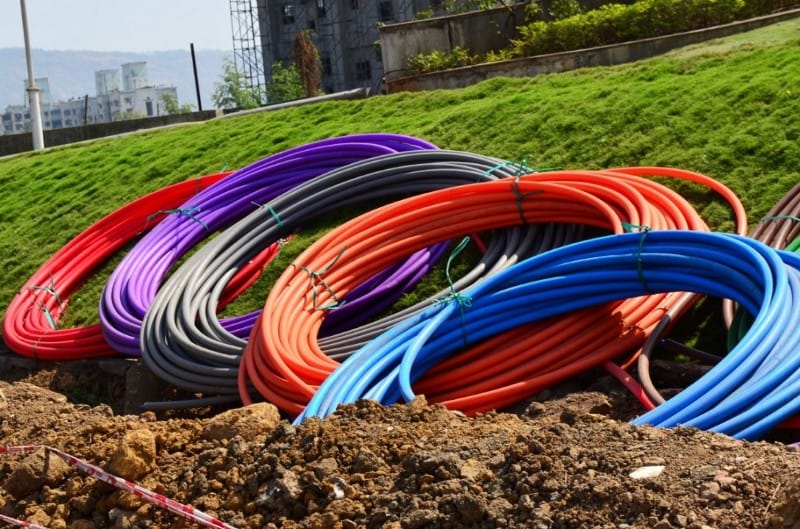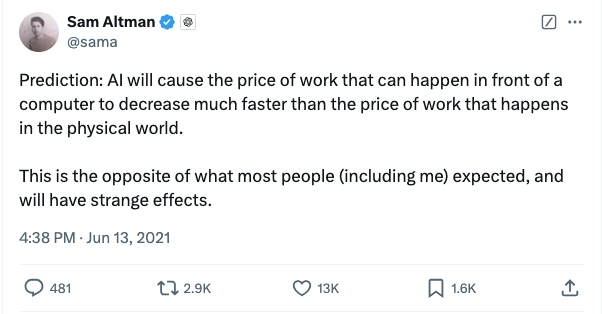Free Broadband
Originally published as a tedious twitter thread which got a fair amount of attention, these are my thoughts on this superficially attractive bad idea...

I don’t normally do party politics on social media but the UK Labour Party Internet policy manifesto commitment announced yesterday is an interesting industry development that needs analysis.
It is difficult to build a list of every single active Internet Service provider in the UK as the market is so dynamic. It ranges from BT at one end, though cable companies like Virgin Media to small, sometimes local providers like https://www.wightfibre.com/ who have invested in fibre infrastructure to serve their local communities.
A good place to start is the fact that there are 880 members who exchange traffic on the London Internet Exchange linx.net. That number isn’t an accurate reflection of the number of organisations providing service to UK homes and businesses though. LINX in London and other UK cities is a major international hub. Many organisations around the world bring their Internet traffic through the UK as we are globally significant. Perhaps a third of the 880 members, say 300 are actively engaged in providing general Internet service to UK homes and businesses.
Another guess could come from the 133 members of the UK Internet Service Providers Association ispa.org.uk/members/, but membership is not comprehensive and some major players are not members. An estimate of well over 200 significant UK Internet service providers is therefore a reasonable number.
The announcement seems to be about one organisation, BT Openreach, the private organisation that is a part of BT Group and owns much but not all of the last few miles of physical infrastructure outside of major cities all the way to our homes. Crucially it doesn’t actually provide Internet service to anyone, only the ducts, poles, copper wire and (small amount of) fiber to our homes and business.
Our actual Internet service is provided by one of the hundreds of service providers. This includes Openreach parent BT who are just one of the many providers of retail and wholesale service.
Often these providers buy access to the essential “last mile” copper lines from Openreach but link them back to their own networks.
UK Internet infrastructure is among the best and certainly most cost effective in the world at the core of the network. In London and major cities a plurality of backbone providers operate competitive high speed fibre networks with lots of capacity.
Openreach by contrast has historically dragged its heels over fibre to the premises. Its imperative to extract maximum commercial advantage from ownership of existing copper wires to our homes and businesses have perverted public policy and persuaded successive governments to give it public subsidy in rural areas to cement this monopoly through Openreach owned fibre to the cabinet technology which, surprise surprise, locks-in its copper wires..
The rest of the industry (the other ~199 providers who are not BT) are infuriated with this dead-end, slow, copper based approach and numerous competing last mile providers have entered the market.
Unable to cost-effectively use the duct and pole network that BT Openreach have a monopoly over, they have had to dig new fibre paths but now serve and are planning to serve a large chunk of the country.
This has by and large been done with private capital as it turns out you can build entire new infrastructures in some areas for less than the cost of installing in BT’s existing ducts.
Even in extremely rural areas, organisations like https://b4rn.org.uk/ have proved that it can be cost effective to build high speed fibre to the premises to outlying villages and farms using community initiative for a fraction of the cost Openreach claim they need to charge.
None of this is happening fast enough, especially in those rural areas. Nationalising Openreach and embarking on an ambitious building programme to equip every premise that doesn’t currently have one with a duct capable of carrying fibre service, then providing access to this at a fair, location independent, cost to their choice of ISP would be a transformational idea.
The part of the announcement that makes no sense at all is the idea that Internet access would then become free. In order to do this, the Government would have to nationalise and consolidate those 200+ providers into one state owned monolith.
I guess it could instead just put them out of business by launching free state funded alternative, but that would lead to a decade in the courts and collapse of technology investment into the UK.
Would much of the world bring its Internet traffic through London exchange points, paying tax on that infrastructure after the government had chosen to gut the domestic industry in favour of a single state owned provider? I doubt it.
There needs to be some serious clarification from Labour about what they are proposing here. There are some well overdue structural changes that we have never had the political will to make which would radically improve the last mile infrastructure in this country.
Election soundbites of #freebroadband, “make Google and Facebook pay”, or “British Broadband for British people” do not cut it. What is the substance of the proposal?
Originally published as a twitter thread at https://twitter.com/RobinJPickering/status/1195302991487799296 on November 15, 2019.




